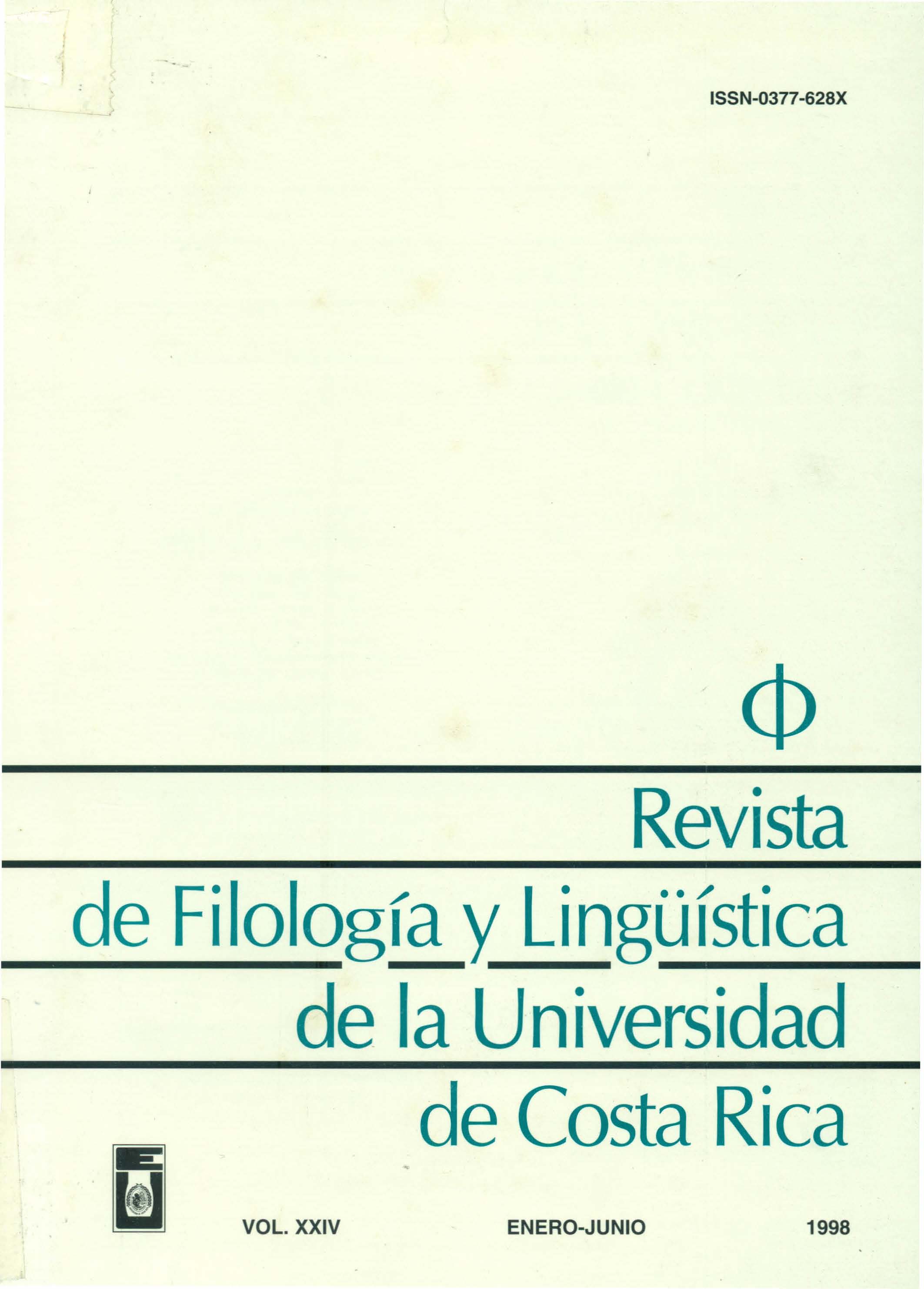Abstract
El objetivo de este artículo es analizar el "prólogo" plautino como una estructura organizada (una estructura retórica) vista en una relación social y cultural a través del teatro como un exponente de educación y de situaciones cómicas. Dicho análisis está fundamentado en las teorías de la retórica clásica (Cicerón, Platón, Aristóteles, Quintiliano) y, además, en la neoretórica de Barthes y en las teorías lingüísticas modernas (Jackobson, Genette, etc.). Estas teorías nos ayudarán a analizar el discurso del prólogo como una estructura coherente en la forma y en el contenido. Los componentes retóricos que podemos observar a través de este análisis establecen la intención pragmática de una "retórica prologística", modalidad que, con los efectos teatrales, transporta al espectador y a los lectores, hacia el contexto retórico que generó el prólogo.
The subject of this paper is to analyze Plautine's "prologue" as an organized structure (a rhetorical structure). It is seen in a social and cultural relationship through theater as an exponent of education and comic situations. Such analysis is framed in the classical rethorical theories (Cicero, Plato, Aristotle, Quintilian), as well as in Barthes' neorhetoric and the modern theories of language (Jackobson, Genette, etc.). These theories will help us analyze the discourse of "prologue" as an coherent structure in form and content. The rhetorical components that can be observed through this analysis, establish the pragmatic intention of a "prologue rhetorics", a modality that, with the theatrical effects, transports the spectator and the readers into the rhetorical context that generated the "prologue".
References
Barthes, R. 1974. Investigaciones retóricas I. La antigua retórica. Argentina: Editorial Tiempo contemporáneo.
Bayet, J. 1972. Literatura latina. Barcelona: Ariel.
Beare, I. 1972. La escena romana. Buenos Aires: Eudeba.
Beristáin, H. 1988. Diccionario de retórica y poética. México: Editorial Porrúa.
Berrio, J. 1983. Teoría social de la persuasión. Barcelona: Editorial Mitre.
Cicerón. 1956. De oratore. París: Les Belles Letres.
Curtius, E. 1975. Literatura europea y Edad Media latina. Tomo I. México: Fondo de Cultura Económico.
Davis, P. 1983. Diccionario del teatro. Barcelona: Paidós Comunicación.
Eco, U. 1986. La estructura ausente: introducción a la semiótica. Barcelona: Editorial Lumen.
Hjemslev. 1971. El lenguaje. Madrid: Gredos.
Jackobson, R. 1988. Lingüística y poética. Madrid: Ediciones Cátedra S.A.
Quintiliano. 1911. Instituciones oratorias. Madrid: Imprenta de Perlado, Páez.
TeatroLatino. 1963. Madrid: E.D.A.F.

